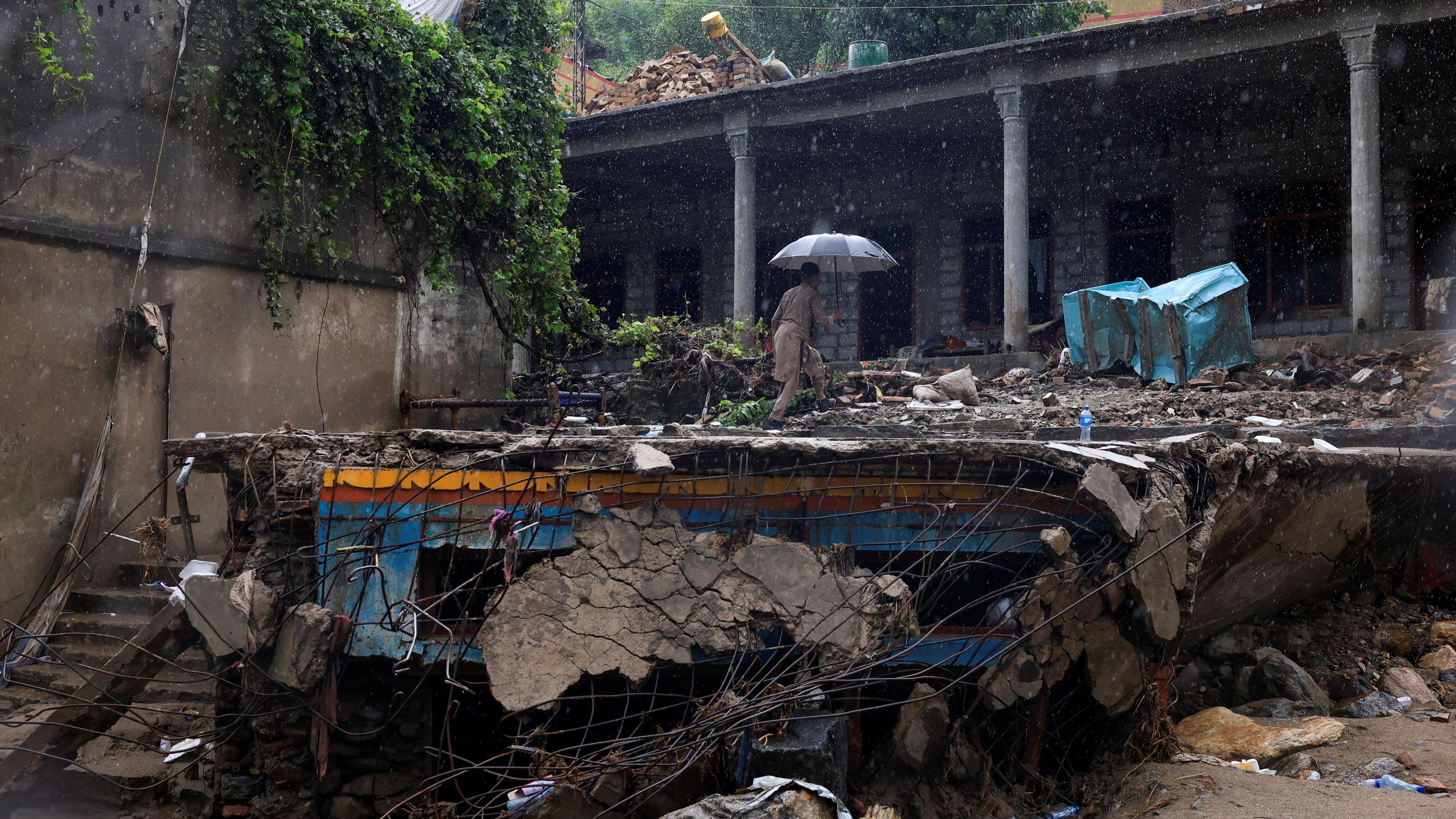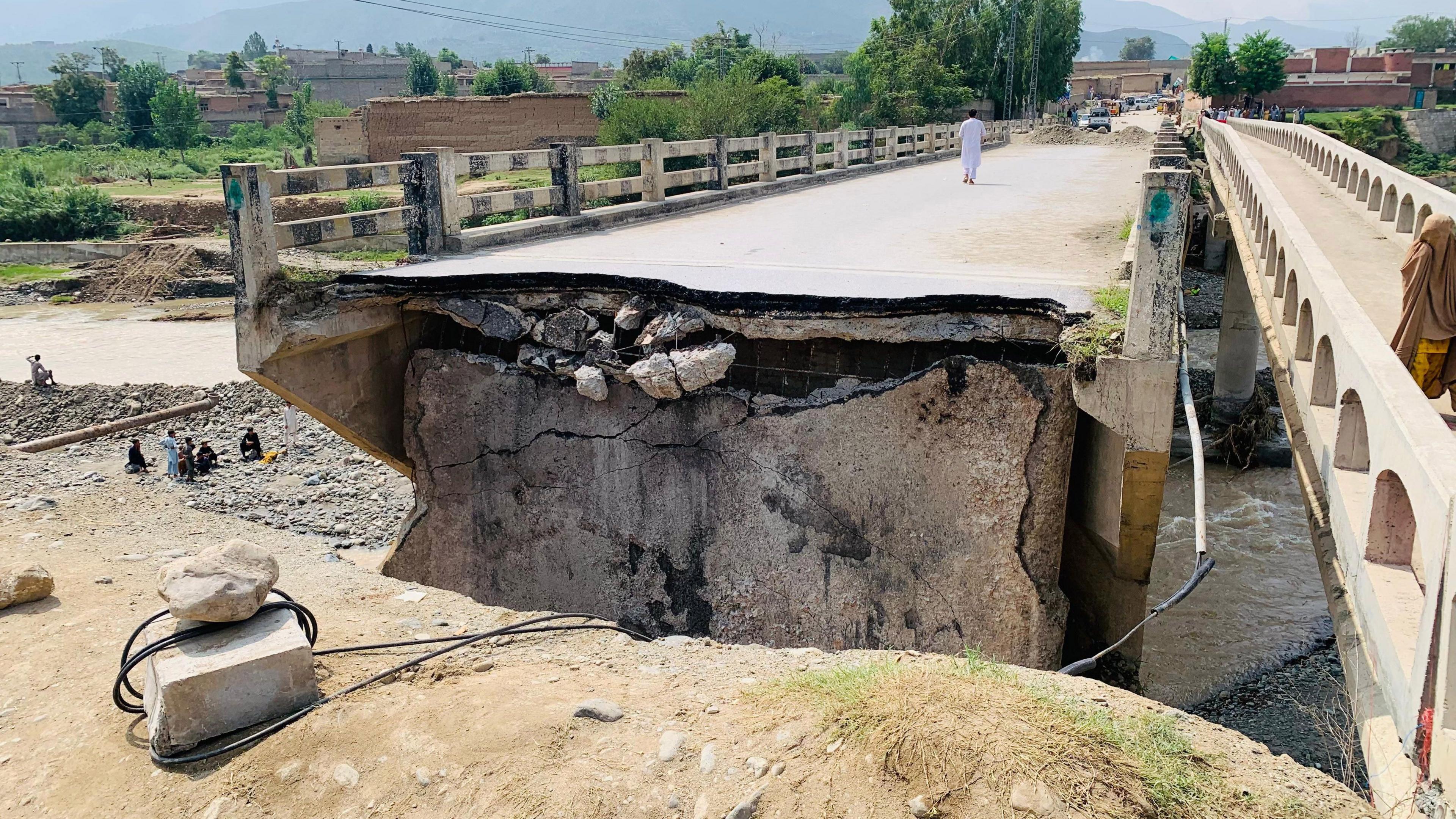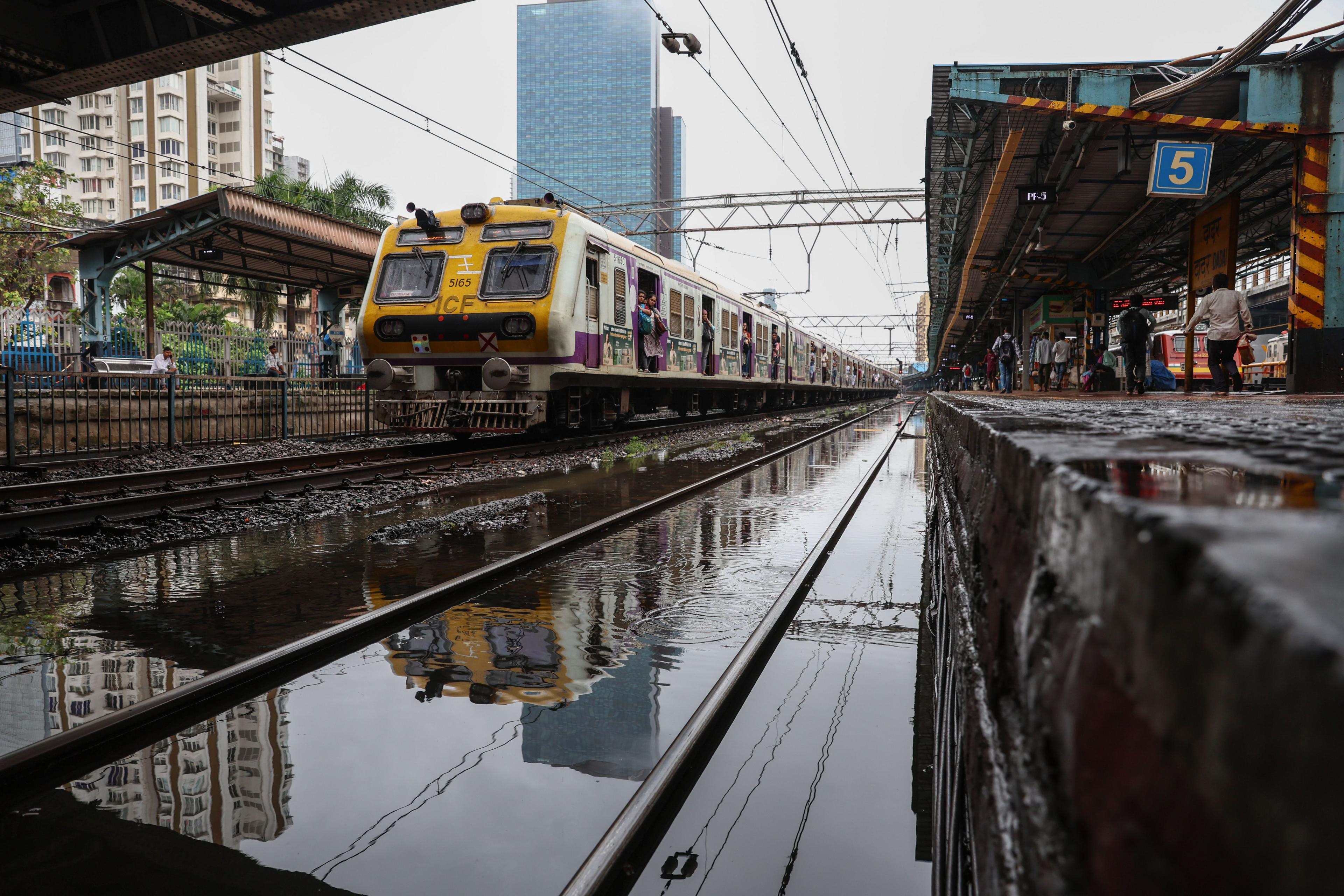Rescuers work to help survivors of Pakistan floods

Whole villages were destroyed in the flooding
- Published
Rescuers in northern Pakistan are helping survivors of flash floods in the country.
Torrential downpours caused the sudden floods which have devastated the region.
Search operations are ongoing and food and supplies are being sent to the affected areas.
Hundreds of people have been rescued and evacuated to safer areas.
Advice if you're upset by the news
- Published29 August 2022
What extreme weather tells us about climate change
- Published3 August 2021
How is smog affecting cities in Pakistan?
- Published17 November 2024
An official in Khyber Pakhtunkhwa province said that more than two hundred people are still missing in one district alone.
Roads and bridges have been washed away which is making searching for missing people and getting supplies to area that need them difficult.
The National Disaster Management Authority has said it is working with local authorities to help speed up rescue efforts.
More than three hundred people have died in the floods so far in Pakistan and Pakistan-administered Kashmir in recent days.

Roads and bridges were damaged in the flash floods and torrential rains
Monsoon rains between June and September make up about three-quarters of South Asia's annual rainfall.
A monsoon describes a seasonal change in the direction of the wind in a region.
This can lead to extended periods of heavy rain during the summer in particular regions around the world.
In Mumbai in India, schools have had to close, several areas are waterlogged and flooding has caused massive traffic jams.

Flooded railway tracks during heavy rain in Mumbai, India
While landslides and flash floods are common as a result on monsoon rains, scientists say that climate change results in them happening more often and more intensely.
While the exact cause of the recent floods and landslides is not yet known, scientists say that melting glaciers in Pakistan are partly to blame.
Government forecasters say heavy rainfall is expected for another few days in the north-west.
The Deputy Director of the Meteorological Department said a new and intense monsoon spell is then expected to start with warnings of more flooding to come.
